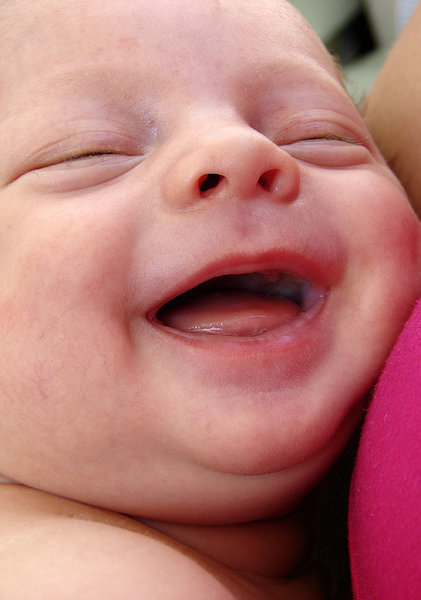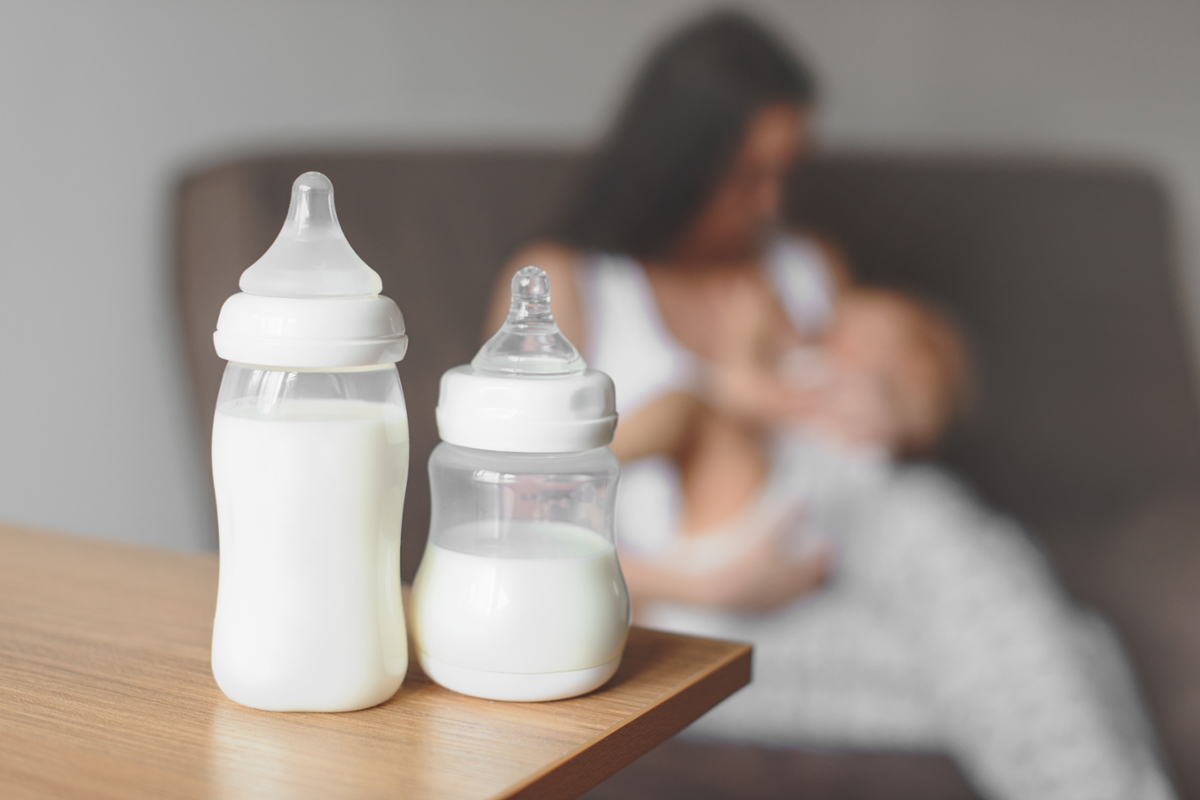For the first 2 to 5 days after your baby is born, you will make a small amount of breast milk called “colostrum” (also call liquid gold), which is all a healthy term baby need. Colostrum is a thick, rich milk that is high in nutrients. Around day 3 through 5, the normal breast milk will come in.
Thank you for reading this post, don't forget to subscribe!In other word – Agalactia is a failure of the mammary gland to produce milk or colostrum after parturition. Agalactia is seen most commonly in mares with fescue toxicosis. Occasionally lactating mothers may develop agalactia due to inadequate nutrition, pain, or disease. Mothers receiving pergolide mesylate for equine Cushing’s disease should stop treatment 2 weeks before foaling for normal mammary development and lactation.
The condition must be differentiated from the inability of the mare to “let milk down” after foaling or delayed lactation reported to occur in some mares.
Breast milk contains the perfect combination of nutrients for growth and development, as well as disease-fighting factors that can help protect against infections and reduce a child’s lifetime risk for problems like diabetes and obesity.
Breastfeeding can do great things for mothers, too, such as making it easier to lose weight and even lowering the risk of certain types of cancer. Studies have shown that breastfeeding reduces a woman’s risk of ovarian and breast cancers. It can also lower your risk for Type 2 diabetes and high blood pressure. 
Breast milk is the best source of nourishment for infants and young children” and recommends babies breastfeed exclusively for the first two years, said Dr Qaisar Ahmed DM, DHMS.
Here are some things that may cause a delay of breast milk coming in:
- Severe stress
- Use of allopathic supplements during pregnancy.
- Cesarean (surgical) delivery.
- Bleeding after birth.
- Obesity (rear cases).
- Infection or illness with fever.
- Diabetes.
- Thyroid diseases.
- Strict or prolonged bed rest during pregnancy.
Milk supply depends on demand (milk removal.) Feeding frequently, when your baby shows hunger cues, is the best way to have a good supply. If you are having trouble with delayed milk production or a decrease in the amount of milk, then first take a look at the number and length of your feedings. And make sure that your baby is able to put his or her mouth around your nipple to nurse (latch on) and can transfer milk from your breast.
If you have a delay in your milk coming in, don’t feel discouraged. Continue to express milk. That means removing milk from your breasts with a breast pump or by hand. And continue to breastfeed often, even if you are supplementing with formula for a few days. Babies who are premature or jaundiced are especially likely to need formula temporarily.
Sometimes a mother has a health condition that may temporarily delay the large increase in milk production usually seen between 3 to 5 days following birth. These mothers may not begin to produce large amounts of milk until 7 to 14 days after giving birth. If this happens to you, don’t feel discouraged. Continue to breastfeed frequently, even if you also must give your baby infant formula for a few days. Babies who are premature or jaundiced are especially likely to need formula temporarily.
Don’t wait to get help if milk supply is ever a concern. The sooner you do, the better. Many communities have breastfeeding support groups that can be a good resource. Contact your healthcare provider if you are having problems breastfeeding. He or she may recommend a lactation consultant, a specialist in breastfeeding.
Diagnosis
Agalactia due to fescue toxicosis is diagnosed based on clinical presentation, prolonged gestation with minimal udder development, and agalactia following parturition. A diagnosis can be made based on abnormalities in prolactin, progestogen, and relaxing concentrations during the last 30 days of pregnancy. Detection of urinary ergot alkaloids with enzyme-linked immunosorbent assay (ELISA) testing can confirm exposure to infected fescue.
Allopathic treatment for no Breast milk or agalactia 
There is no any treatment for agalactia in allopathic drug for human, accept of recommendation of supplements and home remedies and/or diet for mother, for example an Epsom salt bath, food rich of calories etc.
For fouls:
Begin treatment with a dopamine antagonist: domperidone, 1.1 mg/kg PO q24h (preferred), sulpiride, 3.3 mg/kg PO q24h, or perphenazine, 0.3 to 0.5 mg/kg PO q12h or acepromazine, 20 mg IM q6h.
Homeopathic treatment for no Breast Milk or agalactia
Homeopathy is very wide field of medicines; there are more than 200 medicines for increasing breast milk in my knowledge; here are very few of them:
Xylopia aethiopica
Tincture extracted in ethanol or potency from the fruits are used as a tonic to improve women fertility, breast milk production and quality and to aid delivery. Should be prescribed as a condiment, an emmenagogue, anthelmintic, antitussive, carminative and rubefacient.
Xylopia is used generally for pain and in the treatment of bronchitis, asthma, arthritis, rheumatism, headache, neuralgia and colic pain, galactagogue, emetic, rubefacient, stimulant and vermifuge (round worm infestation and as a treatment for biliousness), rheumatism, early stages of cancer, gastrointestinal problems, diabetes, colic, dysentery and also for kidney problems. The whole plant boiled with rice is used as purgative for children.
Fruits of Xylopia aethiopica are particularly high in zinc content, perhaps the reason behind its consumption during lactation.
Chamomilla
Scirrhous induration of the mammary glands. Suppression of milk (milk is cheesy or mixed with pus – Mastitis). Puerperal fever. Erysipelas of the mammae and soreness of the nipples. Profuse lochia (vaginal discharge after childbirth). it is also indicated when there is suppressed milk from anger spells.
Urtica Urens
A remedy for agalactia and lithiasis. Profuse discharge from mucous surfaces. Enuresis and urticaria. Spleen affections. Diminished secretion of milk. Uterine hemorrhage. Acid and excoriating leucorrhea. Pruritus vulvae, with stinging, itching, and oedema. Arrests flow of milk after weaning. Excessive swelling of breasts.
Calcarea Carbonica
Malnutrition. swelling of glands. Incipient phthisis. Abscesses in breast(s). Manses too early, too profuse, too long. Leucorrhea. Hot swelling breasts. Breasts tender and swollen before menses.  Milk too abundant; disagreeable to child. Deficient lactation, with distended breasts in lymphatic women. Much sweat about external genitals. Sterility with copious menses. Uterine polypi.
Milk too abundant; disagreeable to child. Deficient lactation, with distended breasts in lymphatic women. Much sweat about external genitals. Sterility with copious menses. Uterine polypi.
Lac Vaccinum Defloratum
Made from cow’s milk, this medicine is best for malnutritional mothers. It quickly helps to bring breast milk flow in a few hours. Females with large size of breasts (fatty; Mastitis).
Asafoitida
Mammae turgid with milk in the unimpregnated. Deficient milk (Mastitis), with over sensitiveness, pain in breast. Deficient milk with over-sensitiveness after confinement. Hysterical restlessness and anxiety. -Leucorrhea. Milk increased; or diminished – it normalizes the flow and quantity.
Alfalfa
Alfalfa favorably influences nutrition, evidenced in “toning up” the appetite and digestion resulting in greatly improved mental and physical vigor, with gain in weight. Disorders characterized by malnutrition are mainly within its therapeutic range, for example, neurasthenia, splanchnic blues, nervousness, insomnia, nervous indigestion, etc.
Acts as a fat producer, corrects tissue waste. Deficient lactation. Increases quality and quantity of milk in nursing mothers. Its pronounced urinary action suggests it clinically in diabetes insipidus and phosphaturia; and it is claimed to allay vesical irritability of prostatic hypertrophy. The rheumatic diathesis seems especially amenable to its action.
Costus afer Ker Gawl
Costus afer Ker Gawl, natively called the bush sugar cane is classified as an endangered medicinal plant. Costus afer Ker Gawl is highly valued for its antidiabetic, anti-inflammatory and anti-arthritic properties. Chronic inflammatory autoimmune diseases, cough, respiratory problem and sore throat. Alkaloids, saponins, flavonoids, anthraquinones, cardiac glycosides, terpenoids, phenolic compounds and tannins have been found to be present in the plant etc. it acts like a natural steroid, sex hormones, oral contraceptive and anabolic agent. Inflammation and/or infections in breast. Tumers of breast. Mastitis.
It also acts like an antioxidant, hypolipidemic, hepatoprotective, anti-inflammatory, and analgesic, anticancer, antimicrobial, insecticidal and nematocidal activity and also contains Verbasco side, which possesses antimicrobial activities. Acute and chronic toxicity studies.
Pulsatilla Pratensis
It is pre-eminently a female medicine. Uterine diseases, infections. Metrorrhagia. spasmodic, or ceasing. Swelling of breasts, with tensive pain. Lumps on breasts. Affections of nipples. Milk suddenly suppressed; lochia becomes milky white. After weaning, breasts swell.
Euphorbium
Decreased or blocked breast milk due to mastitis or tumors and/or due to cancer. Severe painful breast, pain like electric shock. Breast gangrene. Spasm in breast. Gradually decrease of breast milk.
Causticum
Manifests its action mainly in chronic rheumatic, arthritic and paralytic affections, indicated by the tearing, drawing pains in the muscular and fibrous tissues, with deformities about the joints; progressive loss of muscular strength, tendinous contractures. Broken down senile. Breast milk suppressed from fatigue or anxiety. Cracked nipples. They also have intense itching about the breast. Pain in the breast during nursing can also be felt by them. Uterine inertia during labor. Manses cease at night flow during day. Leucorrhea at night, with great weakness. PCOs.
Natrum Muriaticum 
Prolapsus uteri. Sterility, with too early and too profuse menstruation. Loss of hair in children or during lactation. Child refuses breast; nursing sore mouth. Lancinating pains in breasts. Stitches beneath nipples. Dull stitch beneath r. nipple, also in abdomen. Breasts sensitive to slightest touch.
Grephitis
The typical Graphites patient is “fat, chilly, and costive.” Lymphatic glands are swollen. Obesity. In the female the breasts are affected. Pain under left breast at menstrual period, often waking patient in the night. Hysterical melancholia with occipital headache. profuse leucorrhea.
Cyclamen
Catamenia too profuse and too frequent. Before menstruation (at night) labor-like pains; the abdomen was bloated and swollen on the previous day; the menstrual blood is black and clotted. Secretion from the swollen mammae like milk. Manses suppressed. Painful sensibility and excoriation of the breasts, with eruption of running phlyctenule. Obstruction and induration of the mammary glands. Hard cicatrices remaining after mammary abscess which may cause milk blockage.
Conium Maculatum
Cramps in the uterus, with pinching or contracting. itching and bearing down sensation. Before the catamenia, pains in the breasts. Breasts flabby. Inflammation of the mammae, with stitches; scirrhous of the mammae after contusion. Scirrhous induration of the mammary glands, with itching and shooting pains.
Hymenocardia acida Tul
Hymenocardia Acida Tul contains carbohydrates, tannins, flavonoids, saponins, alkaloids, cardiac glycosides, resins, steroids and terpenes. Conditions assumed to be hypertension and has vasorelaxant activity. Sickle cell disease. Diminish breastmilk supply. Respiratory tract diseases, small pox, rheumatic pains and toothaches (painkiller, anti-inflammatory), colic, abdominal and menstrual pains, abscesses and tumors. Qualities of this medicine include anti-ulcer, anti-plasmodial and cytotoxic activities.
Plagiostyles africana Prain exDe wild
Mother tincture promotes milk-production. Having anti-bacterial and anti-inflammatory effects.
Ricinus communis
This medicine has very strong action on female genitals and breasts. Ricinus communis exhibits various biological and pharmacological activities such as abortifacient effect, acid phosphatase inhibition, acid phosphatase stimulation, agglutin activity, alkaline phosphatase inhibition, anti-conceptive activity, anti-diabetic activity, anti-infertility effects anti-inflammatory activity, antimicrobial activity, antioxidant activity, free radical scavenging activity, hepatoprotective activity, insecticidal activity and repellent properties.
Has marked action on gastro-intestinal tract. Increase the quantity of milk in nursing women. Vomiting and purging. Languor and weakness. Castor oil or leaves decoction or mother tincture is massaged over the breast after child-birth to increase the flow of milk as it stimulates the mammary glands.
Tamarindus indica
Tamarindus indica contains phenolic compounds like catenin, procyanidin B2, epicatechin, tartaric acid, mucilage, pectin, arabinose, xylose, galactose, glucose, uranic acid and triterpene.
Tamarindus indica has antimicrobial, antioxidant, anti-venom properties and also used as a galactagogue, laxative and in the treatment of wounds and abdominal pains, followed by diarrhea, helminth infections, fever, malaria, aphrodisiac, respiratory problems and dysentery. It is a good a digestive, carminative, laxative, expectorant and tonic especially for nursing mothers. Tamarindus indica is an anti-oxidant, anti-hepatotoxic, anti-inflammatory, anti-mutagenic, anti-cancer, anti-ulcer and anti-diabetic activities.
Gum Arabic (Babool) or Acacia Nicolita
Cancers of the ear, eye and testicles. Tuberculosis, smallpox, ulcers, anti-inflammatory, anti-oxidant, anti-diarrheal, anti-hypertensive and anti-spasmodic, anti-bacterial, anti-helminthic, anti-platelet aggregatory, and anti-cancer activities. Ant septic. Stimulate lactation/increase breast milk; it stimulates the release of prolactin and mammary glands of estrogen-primed treats with clear lobuloalveolar development with milk secretion.
Desmodium adscendens
Desmodium adsendens contains indole alkaloids, unsaturated fatty acids, tyramine, hordenine  and saponins. Triterpenoid saponins, tetrahydro so-quinolones, phenylethylamines and indole-3-alkyl amines.
and saponins. Triterpenoid saponins, tetrahydro so-quinolones, phenylethylamines and indole-3-alkyl amines.
It reduces inflammation, improve digestion, and boost the immune system. It can also help reduce stress and anxiety, relaxation of smooth muscles, anti-histamine effects and normalizes elevated liver enzyme levels, improve sleep quality, and reduce fatigue. Improves breast milk quantity and quality. Additionally, it has been shown to help reduce cholesterol levels, improve blood sugar levels, and reduce the risk of certain types of cancer. Furthermore, it can help improve cognitive function and reduce the risk of Alzheimer’s disease. It is used for the treatment of fever, pain and epilepsy, ovary inflammation.
Lactuca Virosa
This medicine is a true galactagogue and increase breast milk flow in lactating mothers. It could be prescribed even in agalactia – entire absence of milk in breast.
Lecithinum
Lecithinum is another prominent homeopathic medicine which act as a galactagogue to increase milk quantity and quality, it makes milk more nourishing and nutritious.
Hibiscus sabdariffa Linn or Roselle
Hibiscus sabdarriffa or Roselle (English) is anthocyanins and flavonoid, as well as organic acids and polysaccharides. Citric acid, malic acid, tartaric acid and ascorbic acid are also present. Some flavonoids include hibiscitrin, sabdaritrin, gossytrin and gossypitrin. A best spasmolytic, antioxidant, antibacterial, antipyretic, diuretic and anthelmintic properties. It treats high blood pressure and liver diseases. In nursing mothers, it increases breast milk supply, increase lactation in cases of poor milk supply.
Gossypium Herbaceum
Gossypium contains carbohydrates, tannins, saponins, steroids (organic – not hazardous), glycosides, phenolics, sitosterol, ergosterol, lipids, gossypol, oleic, palmitic and linoleic acid.
Best for labia swelling and itching. Intermittent pain in ovaries. Retained placenta. Tumor of the breast with swelling of axillary glands. Morning sickness, with sensitive uterine region. Suppressed menstruation. Manses too watery. Backache, weight and dragging in pelvis. Uterine sub-involution and fibroids, with gastric pain and debility, aphrodisiacs, galactagogue, spermatogenic, expectorant, laxative, demulcent, emmenagogue, dysmenorrhea, and for the expulsion of retained placenta, anti-cancer, anti-infertility, anti-malarial, anti-oxidant, anti-Trypanosoma, anti-viral, anti-microbial, anti-viral, hepatoprotective and anti-depressant. Augmenting lactation in perceived insufficient breast milk supply.
Milicia excelsa
Milicia excelsa is commonly known as Odum or iroko. Brest for female sterility, an aphrodisiac, cough, asthma, heart trouble, lumbago, spleen diseases, stomach discomfort, abdominal nuisance, edema, ascites, dysmenorrhea, gonorrhea, general fatigue, rheumatism, sprains, and as a galactagogue (increases breast milk), aphrodisiac, tonic and purgative, piles, diarrhea and dysentery.
On skin it treats scabies, eczema, wounds, and loss of hair, fever, venereal diseases and sprains. They are applied as an enema to cure. Proven in type 2 diabetes.
Additionally, it could be advisees for stomach problems, hypertension, tumors, and obstruction of the throat and as a galactagogue, gallstones, snakebites and fever and as eye drops to treat filariasis.
Ficus Religiosa
Menorrhagia, bright red blood, bearing-down pains in lower abdomen, galactagogue – increases breast milk. Proven in insulins activity from liver and kidney; anti-tumor, anti-ulcer, anti-diabetic, lipid lowering and antifungal, has hypotensive activity. Best choice for asthma, cough, sexual disorders, diarrhea, hematuria, ear-ache and toothache, migraine, eye troubles, gastric problems and scabies; an analgesic for toothache, gonorrhea, bleeding, paralysis, diabetes, diarrhea, bone fracture, antiseptic, astringent and antidote.
Musa paradisiaca
Best medicine to treat and manage diarrhea, dysentery, cholera, intestinal lesions, ulcerative  colitis, diabetes, sprue, uremia, nephritis, gout, hypertension, cardiac disease, otalgia, hemoptysis, an anthelmintic, blood disorders and venereal diseases, anti-inflammatory, analgesic and anti-dote for snakebites, anti-hypertensive as well as hypoglycemic effect due to effects on insulin production and glucose utilization. Best for atherosclerosis. It enhances milk production of nursing mothers.
colitis, diabetes, sprue, uremia, nephritis, gout, hypertension, cardiac disease, otalgia, hemoptysis, an anthelmintic, blood disorders and venereal diseases, anti-inflammatory, analgesic and anti-dote for snakebites, anti-hypertensive as well as hypoglycemic effect due to effects on insulin production and glucose utilization. Best for atherosclerosis. It enhances milk production of nursing mothers.
Nigella sativa
Nigella sativa is best medicine for almost any type of disease accept death. It is best for respiratory system, digestive tract, kidney and liver functions, cardiovascular system, and immune system support, as well as for general well-being and a good galactagogue (increases quantity and quality of breast milk). Having anti-cancer, anti-microbial, analgesic, antipyretic, contraceptive and anti-fertility, anti-oxytocic, anti-tussive, anti-inflammatory, and anti-oxidant potentials. Anti-cancer activity has been demonstrated for blood, breast, colon, pancreatic, liver, lung, fibrosarcoma, prostate, and cervix cancer cell lines. Toxicological studies showed no toxic effects in human.
Solanum torvum Swartz
Short-lasting menses. Discharge of white mucus from vagina. Swelling of mammary glands with profuse effusion of milk, on the second day; cough ailments and is considered useful in cases of liver and spleen enlargement, diuretic and the leaves are used as a hemostatic. It has antioxidant properties. It is intensively used worldwide as a poison anti-dote and for the treatment of fever, wounds, tooth decay, reproductive problems and arterial hypertension.
Solanum torvum also possesses antimicrobial, antiviral, immuno-secretory, antioxidant, analgesic, anti-inflammatory, anti-ulcerogenic activities, cardiovascular, nephroprotective, antidiabetic, angiotensin and serotonin receptor blocking activities. To be used in a concoction to nourish pregnant and lactating mothers with vitamins and proteins and to enhance lactation.
Lippia multiflora Moldenke
It is best for the treatment of stomach aches, nausea and fever, have anti-biotic, laxative and vermifuge activities. Proven for the treatment of arterial hypertension, anti-malarial, anti-microbial, anti-inflammatory, diuretic, laxative, muscle relaxant, lactation failure (increases breast milk). Topically good for gram-negative bacteria, body lice, head lice, scabies’ mites. This medicine possesses a tranquilizer and analgesic activities as diazepam.
Aframomum melegueta (Roscoe) K. Schum
Best medicine for constipation, rheumatic pains, fever, an aphrodisiac. Good for measles and leprosy. Excessive lactation, post partem hemorrhage, purgation, galactagogue (increases breast milk), anthelmintic and hemostatic, anti-inflammatory, anti-oxidant and anti-tumor, anti-protozoal activity against schistosomes.
P. S: This article is only for doctors having good knowledge about Homeopathy and allopathy, for learning purpose(s).
For proper consultation and treatment, please visit our clinic.
Location, address and contact numbers are given below.
None of above-mentioned medicine(s) is/are the full/complete treatment, but just hints for treatment; every patient has his/her own constitutional medicine.
To order medicine by courier, please send your details at WhatsApp– +923119884588.
Landline – +92923631023
 Dr. Sayyad Qaisar Ahmed (MD {Ukraine}, DHMS), Abdominal Surgeries, Oncological surgeries, Gastroenterologist, Specialist Homeopathic Medicines.
Dr. Sayyad Qaisar Ahmed (MD {Ukraine}, DHMS), Abdominal Surgeries, Oncological surgeries, Gastroenterologist, Specialist Homeopathic Medicines.
Senior research officer at Dnepropetrovsk state medical academy Ukraine.
Location: Al-Haytham clinic, Umer Farooq Chowk Risalpur Sadder (0923631023, 03119884588), K.P.K, Pakistan.
Find more about Dr Sayed Qaisar Ahmed at:
https://www.youtube.com/Dr Qaisar Ahmed
